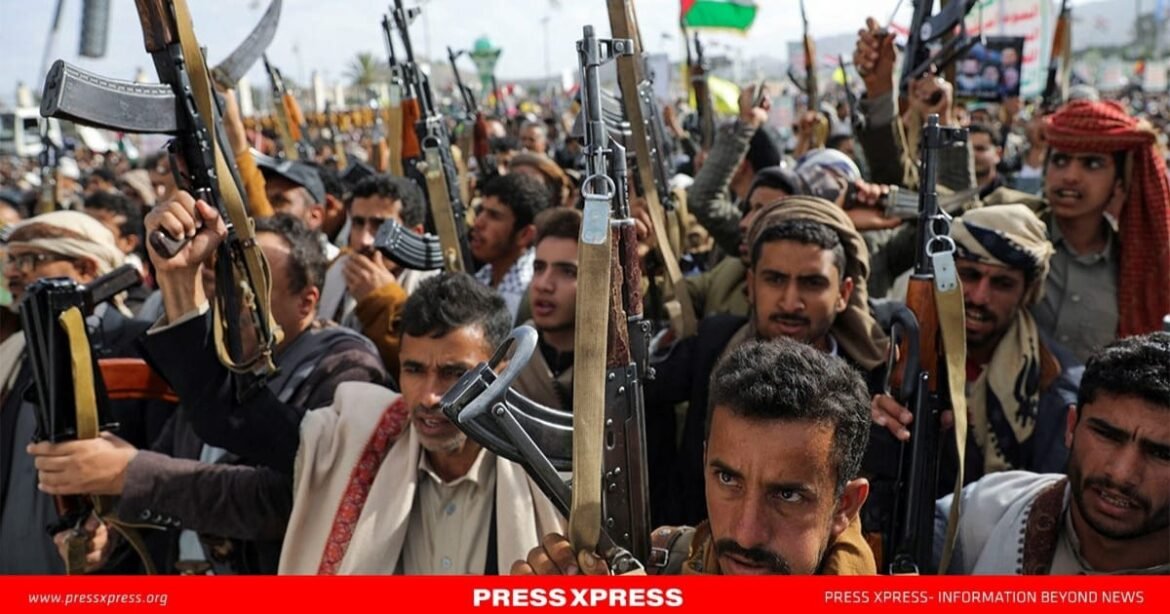Russia’s military efforts in Ukraine are now reportedly expanding to include recruits from Yemen. According to a recent report by the Financial Times, Yemen’s Houthi militia, an Iran-backed Islamist group, has been facilitating the recruitment of Yemeni men for deployment in the Russian army. These recruits, lured by promises of high-paying jobs and Russian citizenship, are said to have been coerced into joining the Russian military and sent to fight in Ukraine.
This development adds a new layer to the ongoing conflict in Ukraine, where casualties continue to mount and both sides are struggling to maintain troop numbers. As Russia faces growing personnel shortages, the involvement of foreign fighters highlights the Kremlin’s reliance on unconventional means to sustain its military operations.
The Recruitment Process and Its Ramifications
The recruitment process, as described by some of the Yemeni fighters involved, appears to be part of a covert trafficking operation. Yemeni individuals were reportedly recruited by a company linked to Abdulwali Abdo Hassan al-Jabri, a prominent Houthi politician. These recruits were promised well-paid employment in fields like security and engineering. Once enlisted, the recruits were deployed to the frontlines in Ukraine, often with minimal training.

One recruit, who spoke anonymously to the Financial Times, described how he and others were initially duped into traveling to Russia under the guise of employment opportunities. After arriving in Moscow, they were told to sign the contracts, some of which they could not even read. Their subsequent deployment to Ukraine was a shock for many, who had not expected to be thrust into combat.
Russia’s Growing Ties with the Houthis and Middle Eastern Militants
The involvement of the Houthis in this recruitment scheme also underscores Russia’s increasing ties with Iran-backed groups in the Middle East. While the Houthis have been involved in Yemen’s ongoing civil war since 2014, their role in global geopolitics has grown, particularly since the war in Gaza. The Financial Times report indicates that Russia is not only recruiting fighters from Yemen but is also deepening its military and political relationship with the Houthi movement.
The Houthis, who have frequently targeted international shipping in the Red Sea, are reportedly in discussions with Russia about potential weapons transfers, including anti-ship missiles. Such weapons could significantly enhance the Houthis’ capabilities and increase tensions in the strategically important region. The deepening cooperation between Russia and the Houthis is seen as part of a broader Russian strategy to expand its influence in the Middle East, particularly in opposition to U.S. and NATO interests.
The Global Dimensions of the Ukraine Conflict
The recruitment of foreign fighters, including Yemenis, reflects the internationalization of the Ukraine war. In addition to the approximately 12,000 North Korean soldiers who have been sent to the Russian frontlines, mercenaries from other countries, including Nepal and India, have also been reported as part of the Russian forces. The growing reliance on foreign fighters signals Russia’s increasing difficulty in sustaining its war effort using only domestic personnel.
As the war in Ukraine becomes more globalized, the implications for international stability grow. The involvement of fighters from countries like North Korea and Yemen, many of whom have little or no military training, points to the increasing desperation of the Kremlin as it faces heavy casualties. According to some analysts, the use of foreign mercenaries may also be an attempt to avoid a full-scale domestic mobilization, which could face significant resistance within Russia.
International Reactions
The reported recruitment of Yemeni fighters has raised alarm in the international community. German Foreign Minister Annalena Baerbock expressed concern that the use of Yemeni recruits would further demonstrate the lack of limits in Russia’s conduct of the war. Similar concerns were voiced by Roderich Kiesewetter, a foreign policy expert from Germany’s Christian Democratic Union (CDU), who pointed out that Russia has been facing severe resource shortages and has resorted to recruiting from countries like North Korea and Yemen to fill its ranks.
The recruitment of fighters from Yemen also has broader geopolitical implications. U.S. officials, including Special Envoy for Yemen Tim Lenderking, have expressed concern over the growing Russian-Houthi alliance, with reports suggesting that Russia has been providing support to the Houthis in the form of military training and targeting data. While there are no confirmed reports of weapons sales between Russia and the Houthis, the growing military cooperation raises questions about the potential for increased instability in the Middle East.
The Future of Recruitment and Mercenary Involvement
The involvement of Yemeni fighters in the Ukraine war is part of a broader trend of increasing mercenary participation in the conflict. As Russia’s military continues to face significant challenges in terms of personnel and resources, the use of foreign mercenaries has become a key strategy for the Kremlin. The recruitment of fighters from countries like Yemen highlights the extent to which Russia is willing to go to maintain its military efforts in Ukraine.
The use of foreign fighters in Ukraine is also a reminder of the global dimensions of the conflict. As the war drags on, more nations and groups are becoming involved, whether through direct military engagement or by supporting one side or the other. The involvement of countries like North Korea, as well as groups like the Houthis, reflects the broader geopolitical stakes of the war and the increasingly complex web of alliances forming around it.
As the war in Ukraine continues to evolve, the recruitment of foreign mercenaries and the expansion of Russia’s relationships with Middle Eastern militant groups suggest that the conflict may continue to draw in new actors, further complicating the already volatile situation. The international community will likely continue to watch closely as Russia seeks to consolidate its position in both Ukraine and the wider Middle East, with implications for global security.


